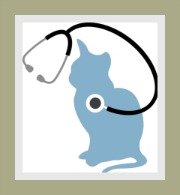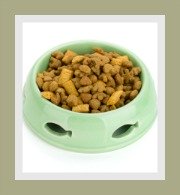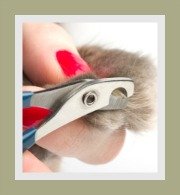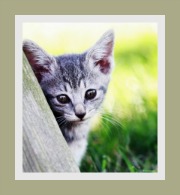Cat Constipation Remedy
Tips on Treating Cat Constipation
What is the best cat constipation remedy for your cat? The truth is that there are a number of remedies and the effectiveness will depend on the severity of the constipation.
Home treatment for cat constipation will generally depend on the cause. We review a number of remedies - you decide which would be the most appropriate.
Do not attempt to diagnose and treat your cat if you are unsure of the cause of the constipation.
Note: If your cat is in pain, passing blood or has a distended abdomen you do need to seek veterinary advice.
The chapter on feline constipation provides indepth information about the symptoms of the condition and the causes of cat constipation.
1. medicinal liquid paraffin
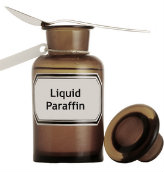
Generally, a cat will respond well to the administration of medicinal liquid paraffin.
The recommended dosage is a half to one teaspoon by mouth twice a day.
It is important not to force the liquid down your cat's throat as it may be aspirated into the lungs, leading to respiratory problems.
Giving more than the recommended dose can result in the liquid paraffin leaking from the cat's anus and soiling bedding and furniture.
Liquid paraffin is one of the oldest and yet a very effective cat
constipation remedy.
2. commercial cat laxatives
There are a number of commercial products available.
Cat laxatives are generally highly palatable (contains fish oils or malt).
These lubricating laxative gels also assist with eliminating hairballs and softening the stools.
Both come in a convenient tube format and all you need to do is squeeze the recommended dosage onto your cat's paw or your finger, and kitty will be happy to lick it off.
Giving this to your cat 3 times a week will prevent constipation and hairball.
This cat constipation remedy can be purchased at drug stores, pharmacies or veterinary clinics.
Note:
Although it may be tempting, never give your cat a laxative that is intended for human consumption. The dosage and the active ingredients are not intended for veterinary usage.
3. cat food for constipation

If your cat is producing dry, hard and lumpy stools, you could add fiber to its diet.
Fiber absorbs moisture and retains water in the stool thereby assisting fecal matter to move through the bowel.
Chat to your veterinarian about a fiber supplement or you could prepare steamed green vegetables or pumpkin and add this to your cat's regular diet.
Encourage your cat to drink water by placing fresh water near its feeding bowl.
If your cat is prone to constipation, it may be an idea to switch from dry cat food to moist cat food (canned or raw).
The treatment of cat constipation can sometimes be as simple as adjusting your cat's diet.
4. herbal remedies for cat constipation

Herbal
remedies as a cat constipation remedy could be considered, but we highly
recommend that you chat to a vet with an interest in natural medicine
about this.
The inner bark of the slippery elm is used in teas to sooth the intestinal tract and ease constipation without causing spasms of the colon.
Dandelion acts as an anti-inflammatory and is also known to stimulate digestion.
If your cat has not passed a stool after two days of treatment with medicinal liquid paraffin or diet adjustment, you do need to contact your vet
5. veterinary diagnosis | treatment
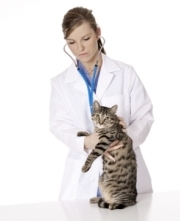
diagnosis
Your vet will take a full medical history before examining your cat.
The physical examination will entail abdominal palpation and a rectal examination.
Further examination may be necessary. This will include abdominal X-Rays or ultrasound to establish the exact cause of the constipation e.g. bowel obstruction due to tumors, foreign objects or hairball.
constipation treatment
The veterinarian may have to administer an enema if the feces is impacted.
In some instances, the cat may have to be sedated or given a general anesthetic in order to manually remove the impacted feces.
Once a diagnosis is made, the vet will decide on the most suitable cat constipation treatment.
This may involve surgical intervention to remove a tumor or obstruction.
Conservative treatment would include:
- Diet adjustment or special cat food for cat constipation
- Lubricating veterinary laxative or fecal softeners
- Increased fluid intake (water not milk)
- Increased activity (exercise)
- Frequent grooming to reduce the incidence of hairball and feline constipation
Let's hope your kitty's on the MOVE soon!
Top of Cat Constipation Remedy Page
Return to Feline Constipation
search our site
please like us
share our site
recommend on google
favorite pages

